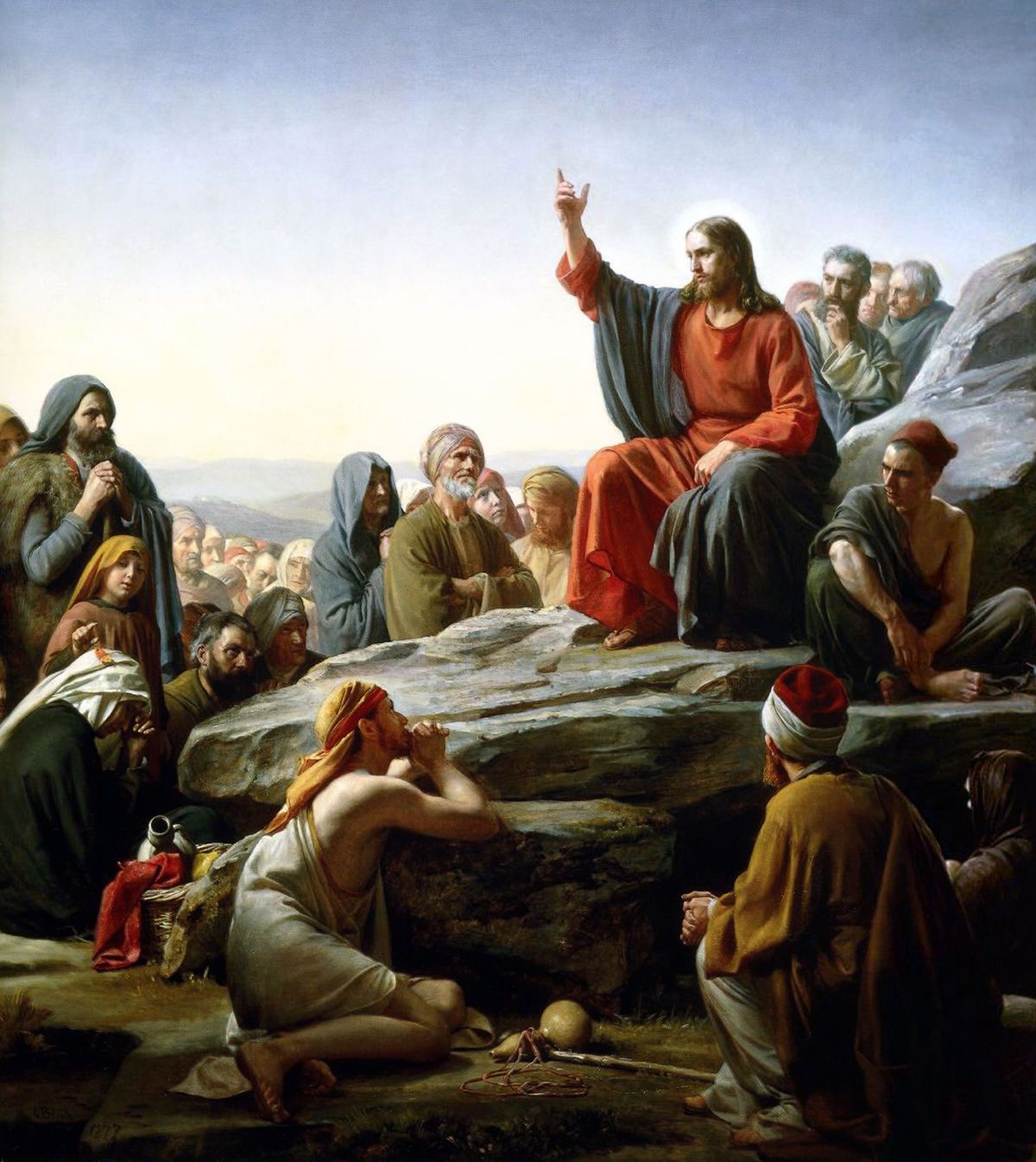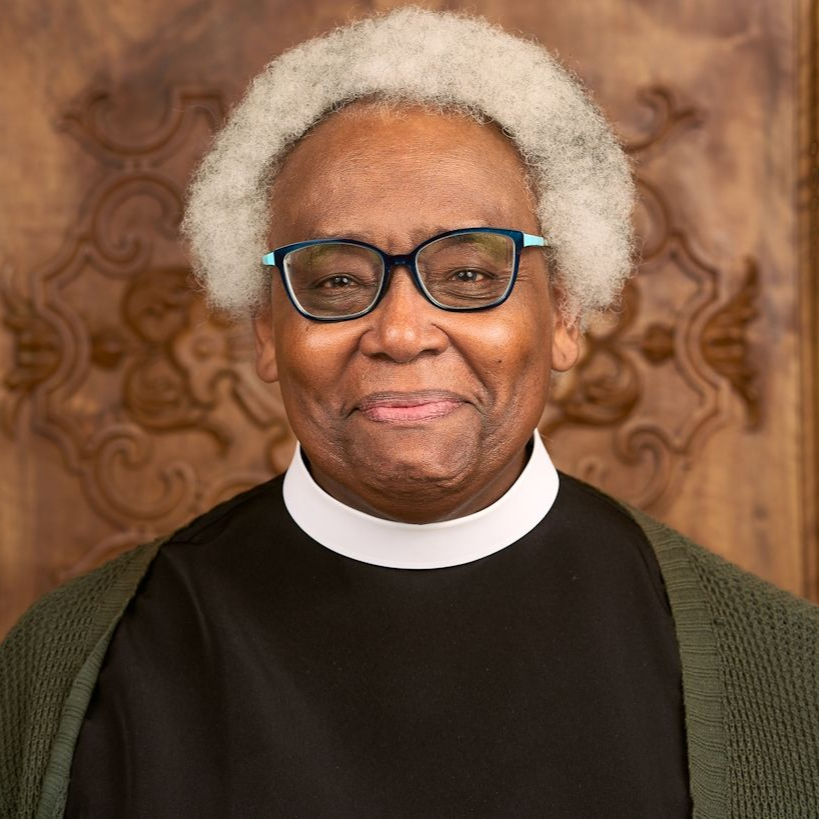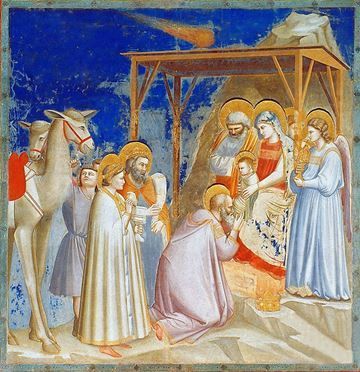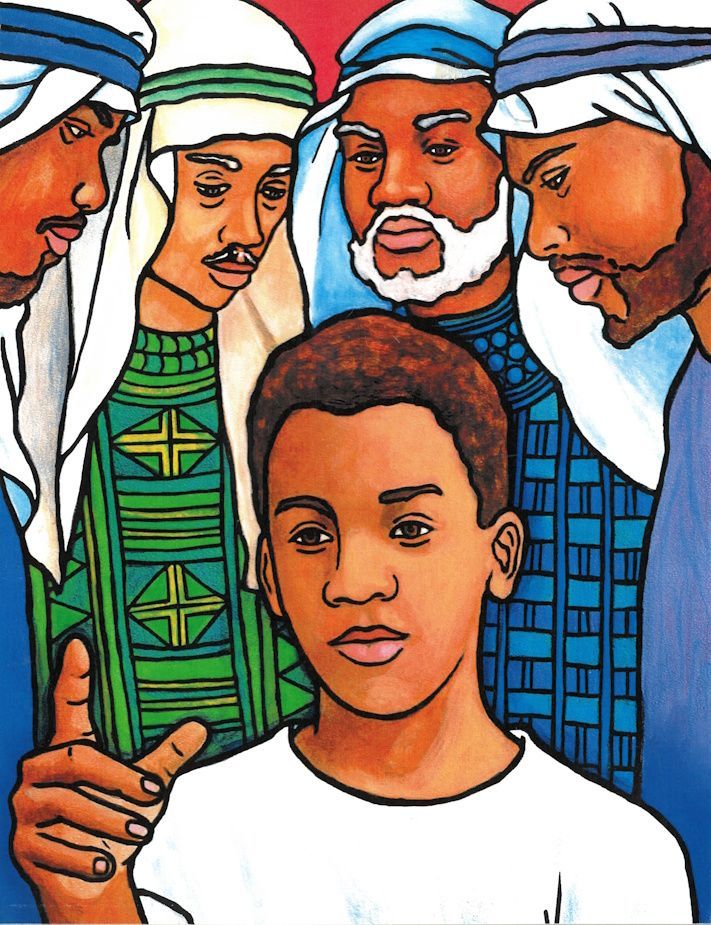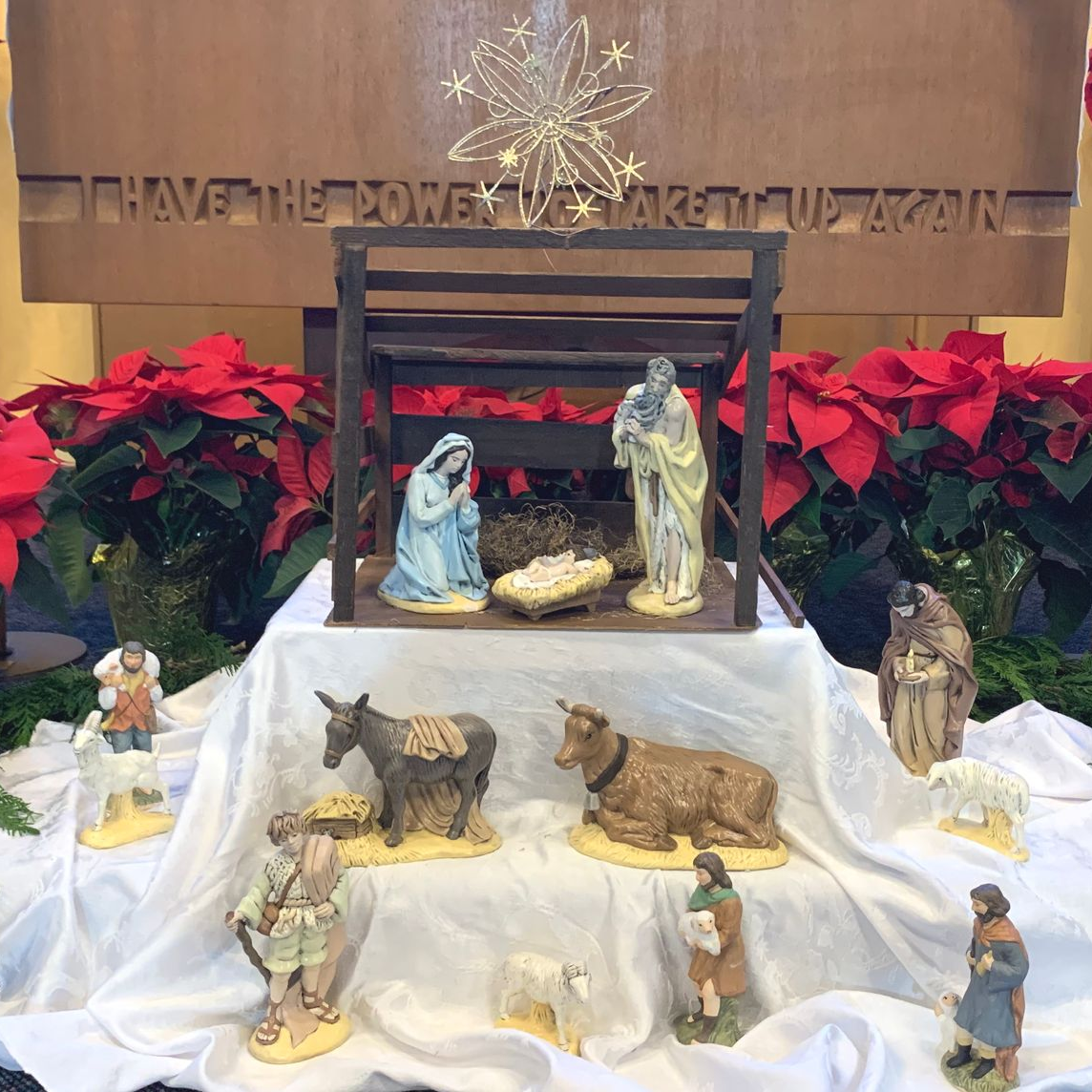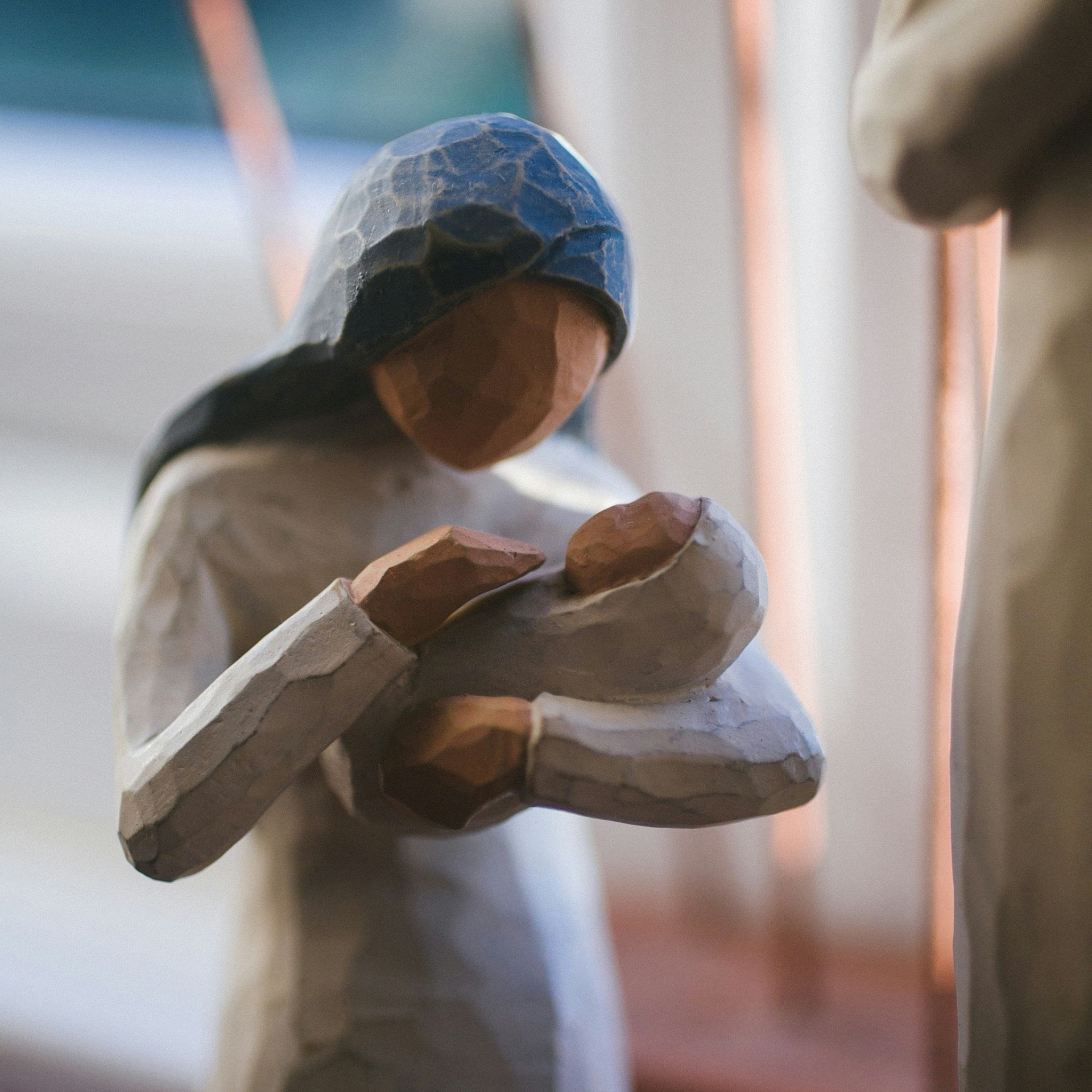You Are Theophilus
Theophilus? Who the heck is Theophilus?
2025-31
sermon preached at Church of the Good Shepherd, Federal Way, WA
www.goodshepherdfw.org
by the Rev. Josh Hosler, Rector
The Eve of the Ascension, May 28, 2025
Acts 1:1-11 ;
Psalm 93 ;
Ephesians 1:15-23 ;
Luke 24:44-53
In the forty days after the Resurrection, Jesus is always coming and going. You never know when he’ll turn up, and when he does, it often takes a while for the folks to recognize him. He’s the gardener, except he isn’t. He’s a stranger on the road, except he isn’t. He breaks bread, and then somehow he’s gone.
As I’ve said before, I find the confusing nature of Jesus’ resurrection appearances to be among the very best evidence for their truth. Hucksters would have tried to make a cohesive attempt at a conspiracy. Instead, we find that the resurrected Christ is elusive, but no less physically solid for it. And his friends are left to tell the story of his constant appearing and disappearing in any way they can.
The same goes for the Ascension. Luke is the only gospel writer who gives us this story, and he gives it to us twice: first at the end of his gospel, and then again in a slightly different way at the beginning of his sequel—the Acts of the Apostles. That time, it’s like he begins by saying, in a voice made for voice-overs: “Previously on The Good News …”
Except that what he actually says is this: “In the first book, Theophilus, I wrote about all that Jesus did and taught from the beginning until the day when he was taken up to heaven, after giving instructions through the Holy Spirit to the apostles whom he had chosen.”
So who the heck is Theophilus? This could be a real person, or this could be a generic name for Luke’s audience, because “Theophilus” literally means “lover of God.” I’m partial to that second explanation myself.
Even after all the resurrection appearances, the disciples are still clinging to their political agenda of Jesus using force to make Judea great again. They ask, “Are we there yet? Are we there yet?”
Jesus sees how stuck they are—it’s like he’s given up on telling them that’s not where he’s going, because he knows they won’t hear him anyway. So he urges them to be content not to know—just to sit back and enjoy the ride, because it will be quite a ride. The Kingdom will come, but it won’t be the kind of Kingdom anyone was expecting. And Jesus’ disciples—and millions of disciples after them—will keep pointing the way toward the Kingdom Jesus intended.
This reading brings us to the heart of what it means to be a Christian today. We are a people who note that we are alive and aware and then dare to believe that we are created, not accidental. We dare to believe that the One who created us loves us and wants a relationship with us as individuals and as an entire world. We dare to believe that we personally, as people and as a church, have been called in a specific way, to follow a man who lived 2000 years ago and yet is still somehow with us.
This Jesus keeps calling us, the church, in new directions. When we dare to follow Jesus, we find ourselves in situations that aren’t really under our control. Indeed, the deeper we go into knowing and understanding Jesus, the more we learn that we were never really in control in the first place.
Like those first disciples, we are baptized. We are baptized in water and the Holy Spirit, and we receive the light we are to bring to the world. This light isn’t to be used for manipulation or coercion, but simply to bring a message of Good News: You Are Loved Eternally. The very creator of the universe is always wrapping you up in love, even when you are at your lowest, no matter what, and you don’t have to do anything to earn God’s love or to keep it!
It’s a radical idea, isn’t it? Each one of us, sooner or later, entertains notions that maybe we aren’t so loved after all, especially when we find that we have hurt others or let them down. We fall prey to the mistaken belief that our sins come between us and God, and we let that mistake inform our decisions. We try to hide ourselves from God, like Adam and Eve hid in the Garden. But God hunts us down, calling, “Where are you?” It’s a voice filled not with anger but with heartbreak, because relationship with us is what God most wants.
This is reflected in a thread I wanted to preach on Sunday, but I didn’t have time to cram yet another theme into that sermon. In John’s gospel, in his farewell discourse to his disciples on the night of his arrest, Jesus says, “Those who love me will keep my word, and my Father will love them, and we will come to them and make our home with them.”
We heard the same theme the previous Sunday in the Revelation to John: “See, the home of God is among mortals. He will dwell with them as their God … he will wipe every tear from their eyes.”
There’s no place God would rather be/
Than hanging out with you and me.
Hey, that sounds like the first two lines of a song! Hmmm, maybe that needs to get written sometime. Anyway …
After forty days moving in and out of the dimension of earthly life, the risen Christ steps back out of it for good. To the disciples, at least according to Luke’s telling, he appears to do this by rising into the sky. But they know it happens in a number of ways. He has stepped into the garden with Mary Magdalene, and into a locked room with the Eleven, and onto the road with Cleopas and his buddy and later broken bread with them. And according to John he has stepped onto the seashore and called to the fishermen from the land, “Come and have breakfast!”
Jesus is always showing up to set a table, like a Good Shepherd serving food in the valley of the shadow of death … right in the presence of our enemies. Jesus is laying out the silver and pouring the wine, just like we hear about Sophia, the image of God’s Wisdom in the Hebrew Bible. The very expression of God’s love is moving among us in many different ways, so often spotlighting meals as the best place to gather. And we make our places of worship, and we eat and drink together here, too—in ritual in this room, and more literally downstairs in Seaman Hall.
But our work doesn’t stay within these walls. Everywhere we serve food and pour drinks, we get to live in joy with our neighbors, and to share that same Good News: “You are loved eternally!” When our day-to-day life becomes a grind: “You are loved eternally!” When the wolves are at the door: “You are loved eternally!”
This proclamation isn’t meant to deny the realities of life, but instead to serve as fuel for the engine of our compassion. If we are loved eternally, and if everyone else is too, then why would we ever do evil to another person? Why would we ever hoard our possessions, since there is no end to the provision God makes for us? Why would we ever let apparent scarcity have the last word? We are free to share ourselves with others. Even when tragedy takes hold, that is the place for us to go, to be with those who are suffering, and to serve at least a little bit of that heavenly food of hope.
We are gathered here tonight to refuel yet again, on this, one of the seven principal feasts of the Church. Marking the Feast of the Ascension is an ancient tradition that I’m not willing to let go of just because it falls in the middle of the week!
But after we are fed tonight, we are not to hang around looking up into heaven. Our job is to get back out there, where the Holy Spirit is spreading a table for everyone, even in the presence of those who wish them harm. We need to get back to our lives, for the Holy Spirit will surely come to us. Home is not the safe little places of shelter we make for ourselves to keep the world out. Home is wherever the Spirit shows up and serves food.
If you are here tonight, you are Theophilus. You are the lover of God who is Luke’s intended audience. You have been clothed with power from on high. That may look different for you than it did for the apostles on Pentecost! I know it does for me. But that power is upon you nevertheless.
And so I pray for you using the same words we hear from the Letter to the Ephesians: “I pray that the God of our Lord Jesus Christ, the Father of glory, may give you a spirit of wisdom and revelation as you come to know him, so that, with the eyes of your heart enlightened, you may know what is the hope to which he has called you, what are the riches of his glorious inheritance among the saints, and what is the immeasurable greatness of his power for us who believe.” Amen.



